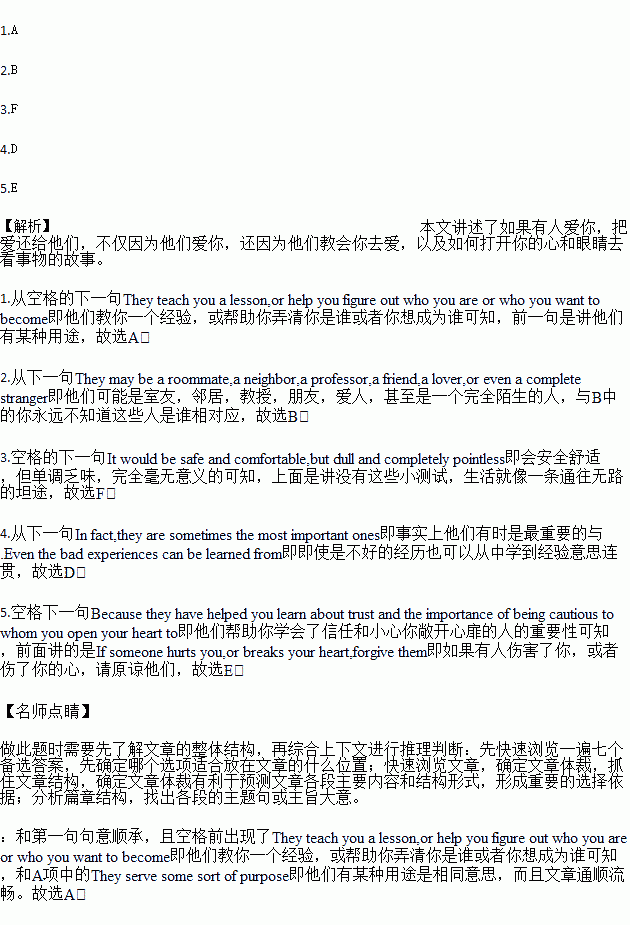题目内容
Sometimes people come into your life and you know right away that they were meant to be there.1.They teach you a lesson,or help you figure out who you are or who you want to become.
2.They may be a roommate,a neighbor,a professor,a friend,a lover,or even a complete stranger.Sometimes things happen to you that may seem horrible at first,but later you will find that without those difficulties you would have never realized your potential.3.It would be safe and comfortable,but dull and completely pointless.
The people you meet and affect your life,help to create who you are and who you become.4.In fact,they are sometimes the most important ones.
If someone loves you,give love back to them not only because they love you,but because they are teaching you to love and how to open your heart and eyes to things.
5.Because they have helped you learn about trust and the importance of being cautious to whom you open your heart to.Make every day count.Appreciate every moment.
A.They serve some sort of purpose.
B.You never know who these people may be.
C.Learn a lesson in life each day that you live.
D.Even the bad experiences can be learned from.
E.If someone hurts you,or breaks your heart,forgive them.
F.Without these small tests,life would be like a smooth road to nowhere.
G.If you don't believe in yourself,it will be hard for others to believe in you.

